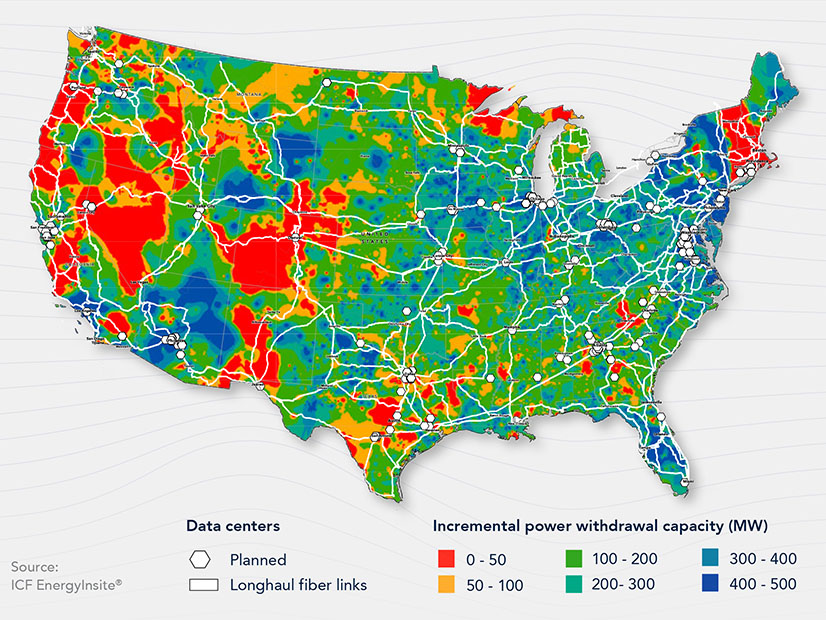ICF Paper Shows Where New Data Centers Can be Sited Quickly

Planned data center development overlaid by electric withdrawal capacity and fiber optic networks | ICF EnergyInsite
Dec 17, 2025
|
ICF International has released a new paper discussing where data centers could be sited.


